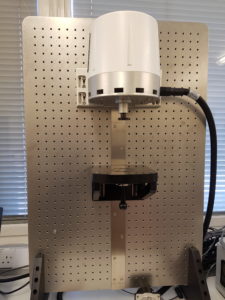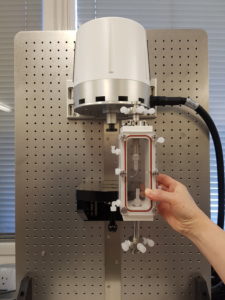Host: Dr. Wenhui Song, Reader in Biomaterials at the Department of Nanotechnology in UCL, at the Division of Surgery and Interventional Science at the Royal Free Hospital,
Dr. Song took us on a tour of the ongoing research projects she is Investigator in, which include research into a new conceptual design for a future Cochlear Implants. It is exciting to know that new research is being funded and conducted using public grants. Dr. Song’s research examines Piezo-nanofibre based acoustic devices for an artificial cochlea.
She is also working with Prof Martin Birchall of The Ear Institute and Dr Anne Van Hoestenberghe of the Department of Materials & Tissue of UCL, in collaboration with Professor Jonathan Rossiter at Bristol University, on developing Soft robotics for restoration of voice, breathing and swallowing project.
The prospect of both artificial vocal and aural mechanisms, heralds the future hybridisation and integration of corporeal systems with robotic micro-computing prosthetic organs.
We discussed:
Manufacturing Bespoke Human Organ using 3D printers
– Print scaffoldings for implants where bio-tissues grow on the scaffolding. The scaffolding is what gets “installed” transplanted in the system. The prints have been successfully implanted into mice and the next stage is implanting into pigs, which is the precursor for implanting in humans.
Bioreactor
– Computer-monitored and controlled capsule where bio material grows and where the conditions and influenced by a feedback system where monitoring of the growth influences the settings. A feedback system.
Research Piezo-nanofibre based acoustic devices for an artificical cochlea (related to CI)
– Developing a new method where fabric is woven from conductive wires, and current is harvested from the conductance of these vibrating fabric (passive method) hopefully enough to stimulate the hair cells.
– They were conducting measurements with the system.
Voice box development: Soft robotics for restoration of voice, breathing and swallowing
– A collaboration with the university of Bristol who are developing the physical interface.
A bioreactor built at the department

